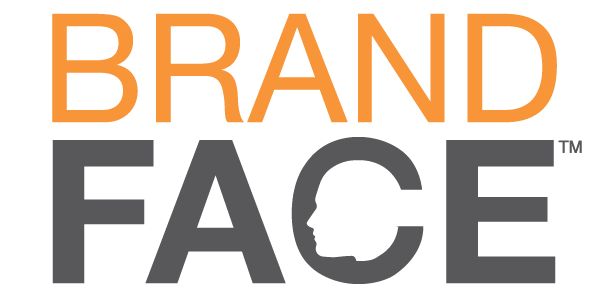One of entrepreneurs’ greatest fears regarding business is a fear of focus. When you don’t have focus, it’s difficult to know how to position yourself in your industry. Just the mention of choosing a niche can bring on a case of hives for people. Some think choosing a niche means turning down business, but not doing so means doing nothing to stand out.
How do you choose a niche for your business? In other words, how do you pick a brand position? We’re sharing with you six main brand positioning strategies that you should consider when positioning your brand.
1. Geographic Area
Make sure you are highly knowledgeable in the area because the whole brand position is based on knowledge of the area. This positioning is good for the travel industry or real estate.
There are pros and cons to positioning yourself as an expert in a specific area. First, this is one of the most common types of positioning, so when you’re going for differentiation, you’re already restricted in some ways. It can also leave you vulnerable to your competition if your only point of differentiation is the area in which you work.
If you also showcase other things that set you apart, this option can be both focused and meaningful. Remember that if you move to another area, you’ve got to rebrand.
2. Customer Type
This position is one that most people think of first when they think of choosing a niche. This category seems to bring the most fear because people believe that by focusing on a specific customer type, other customers will write them off.
But let’s assume you’re a business coach. You’ve decided to focus on working with clients who own small businesses and need help hiring virtual staff. Imagine your business grows from six figures to seven figures, and so on. That doesn’t mean you’ll never work with small business owners who want virtual team members anymore. It just means you nailed the ones you’re trying to speak to and you’re not going to spend your time and money marketing to people that don’t want virtual team members.
You’ll naturally get other customer types from fringe businesses or referrals because your work will attract some people. Suppose you attract who you want and get more customers. In that case, you can refer people that may not fit to another business and get a referral fee off of it.
3. Product or Service
Specialize in your product or service, but only if your product or service differs from others in your industry. Suppose you’re a coach or a consultant, and you help people repair their credit, keep their marriage together, or invest in real estate. Whatever you do, make sure you are doing it differently.
Anybody can be known for selling a specific product or service. Ask yourself, have you created a particular brand positioning framework that’s different from other similar products? Does your product have specific ingredients, or is it made through a different process than your competitors? Think about ways to differentiate yourself within that product or service because that will make you stand out.
For example, many people in the world do personal branding. But here’s how BrandFace is different. One, we’re the most comprehensive personal brand building system globally. Two, we consider 77 different criteria when we build personal brands. And three, we’ve created our 3D Formula that provides a step-by-step formula for building a personal brand. Those make us different and set us apart.
4. Experience
We’re not necessarily talking about the amount of time. We’re also talking about your story and why that’s important to your prospect. There are very few situations where a customer will care about the number of years you’ve been in business compared to your competitors. It’s not about the amount of time. It’s about what you have learned throughout that experience and what it means to your customer. Those are the things that differentiate you.
For example, the marketing materials for Michael Carr & Associates say over 78,000 homes sold. It is quite a feat, and people are taken aback by it, but it’s the why that matters more. The experience that comes from being involved in that many sales means you’re dealing with not just Michael. but all the people he has taught, mentored, and brought into his team. They now have a lot of knowledge, which means you’re dealing with pros who can handle virtually any situation.
5. Attributes
This type of positioning is used often in branding, whether for industry veterans or people new to the industry. After all, they can’t tout experience because they may need to gain the specific skill set and experiential knowledge in the industry that their competitors have. When that happens, many times we focus on individual attributes.
Individual attributes can set anybody apart and appeal to the type of customer you’re trying to speak to. Some people may be driven and persistent, thus satisfying a client’s needs or desire to get things done quickly. Others may motivate you, inspire you, or provide a positive experience, giving you great confidence in your journey.
The key to this positioning is authenticity. Use your solid personal attributes to attract clients that appreciate that.
6. Expertise
This category focuses on your knowledge in a specific area of business. Note that it’s a particular area of a field of business. Find a specific niche in your field of business and become well-known in that space.
If you’re new to an industry, think about what it is in your past that positioned you perfectly for what you’re doing right now. For instance, you want to be a coach who works with Ironman athletes, but you haven’t been a coach before. You may have experience in training and nutrition that helps you excel in competitive sports. That past expertise can position you perfectly to coach others to do the same.
The expertise positioning is one of the most powerful approaches to differentiation because it focuses on expertise exclusive to you. The type of expertise you bring to the table should match your ideal customer’s wants or needs.
The Takeaway
A strong brand positioning helps you stand out in crowded and competitive markets. These six brand positioning strategies can help you differentiate yourself and build a strong brand. Building a strong personal brand also helps you attract ideal customers and teaches people how to treat you so you earn better working relationships.
Are you a Coach, Consultant, or other Expert with a life-changing message to share? Download our free ‘Ultimate Guide to a Freedom-Based Brand’ to learn how to position & present yourself and your offers differently in order to maximize your time and dramatically increase profits.
————————
BrandFace LLC is a personal branding company for coaches, consultants and other experts who want to STAND OUT from their competition and attract their ideal customers so they can become recognized and sought after authorities in their industry. Tonya Eberhart & Michael Carr are international bestselling authors and the partners behind BrandFace. Their mantra is, “People don’t do business with a logo. They do business with a person.”

